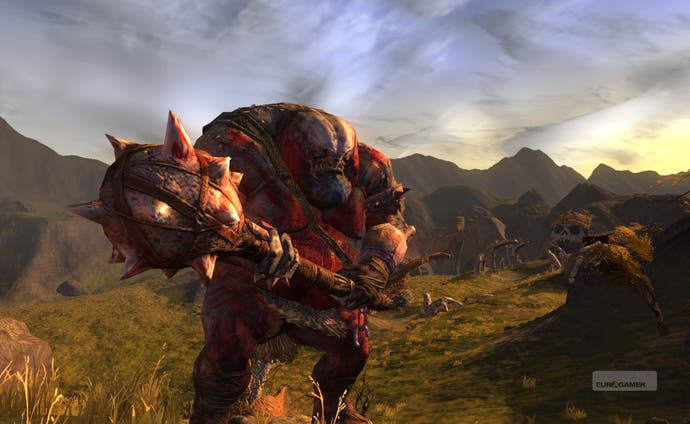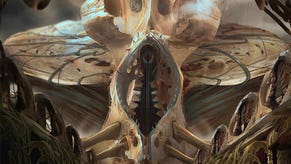Heroes of Telara
Serving up new technology in MMOs.
The MMO market is a tough one to crack. When Eurogamer launched its MMO channel early last year, it was in a mood of anticipation of a market that was about to be blown wide open, of what looked like a year's worth of stellar big-budget launches that would stampede through the breach made by World of Warcraft, and seize the mainstream.
16 months later, it hasn't worked out that way. In the premium subscription market, game after game has been delayed or scrapped. The anticipated flood of launches has actually been a halting trickle, and the couple of contenders that have managed to set sail - amid much fanfare and cracking of champagne against their hulls - have promptly floundered against their own over-ambition, or the granite cliffs of WOW's imposing Wrath of the Lich King expansion. Meanwhile, there's been frantic gold-rush into free-to-play gaming - and doubtless, some people somewhere are making some money in that mess, but not many seem to be making good games, Sony Online's recent Free Realms being the noble exception.
So it's a much warier atmosphere out there now. But there are still sufficient riches to be made that barely a month goes by without some new company surfacing, pockets stuffed with venture capital, hoping to make its backers' fortunes in MMOs. Last year, one of these was Trion World Network, and at this year's E3 it was ready to show its first project, fantasy MMORPG Heroes of Telara.

Trion is unusual in that it's banking on neither a big licence, nor a quick-buck raid on free-to-play gaming, to make its mark. It's banking on technology. Server technology, to be exact. The company's vision of server-based gaming (explained by chief executive Lars Buttler in a recent GamesIndustry.biz interview) reserves only video and audio rendering and the user interface for the game client, handling everything else - AI, physics and the very state of the game world you're in - on Trion's servers.
Most MMOs are halfway towards this state of play by default, but Trion's complete dedication to it makes it possible, Telara lead Russ Brown reckons, to create a much more flexible "live" world that you can currently see in its MMORPG competitors. The world-state can be changed on the fly by both developer and player, and events can more easily be triggered at a scheduled time.
"It allows us to trigger and tell the servers what the client needs to do," he explains. "So once the client has something like a dragon model, animations and a city, you can have the servers tell the client, hey dragon I want you to attack the castle... or the port. This allows us to give you more situations, more encounters, without necessarily patching the client."

That last part is probably the key differentiator for Heroes of Telara. Several current MMOs have taken steps to shake up the genre's famously static worlds - Lich King's story-driven zone phasing, for example, or Warhammer Online's city siege system. But genuinely new content is impossible in these games unless it's delivered by a patch. Usually, an exhaustively play-tested, months-in-waiting patch. Trion is proposing a much more fluid world for Heroes of Telara that will constantly surprise its players, and hopes, once and for all, to break the excitement-to-apathy patch cycle that more or less constitutes MMO players' three-monthly period.
There's a second part to Trion's new flexible server system - a distributed architecture. "We allocate so many cores to each system," says Brown, "so we have so much horsepower going to physics, so much going to AI, so much going to world simulation - unlike a traditional MMO where you allocate your cores based on geographical location in the game, saying this island has so many cores or this continent has so many cores." This, he explains, will prevent server-side lag when large player populations congregate in a single area for one of the game's scheduled events.














